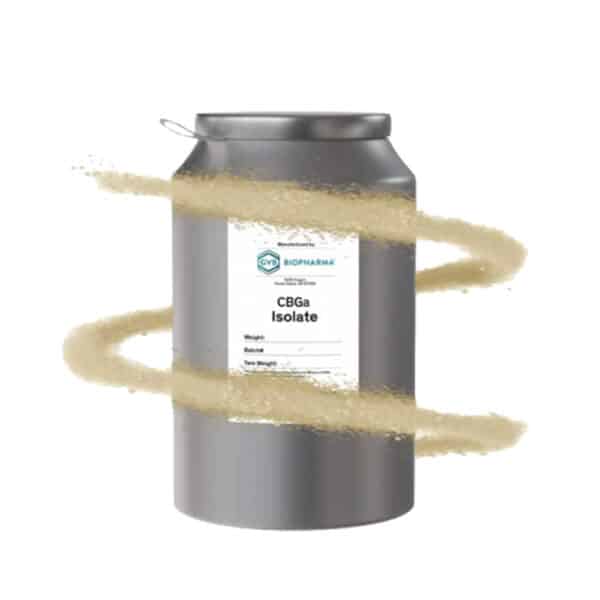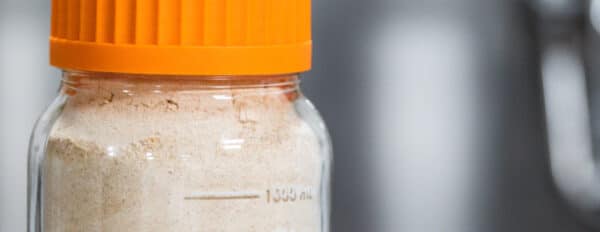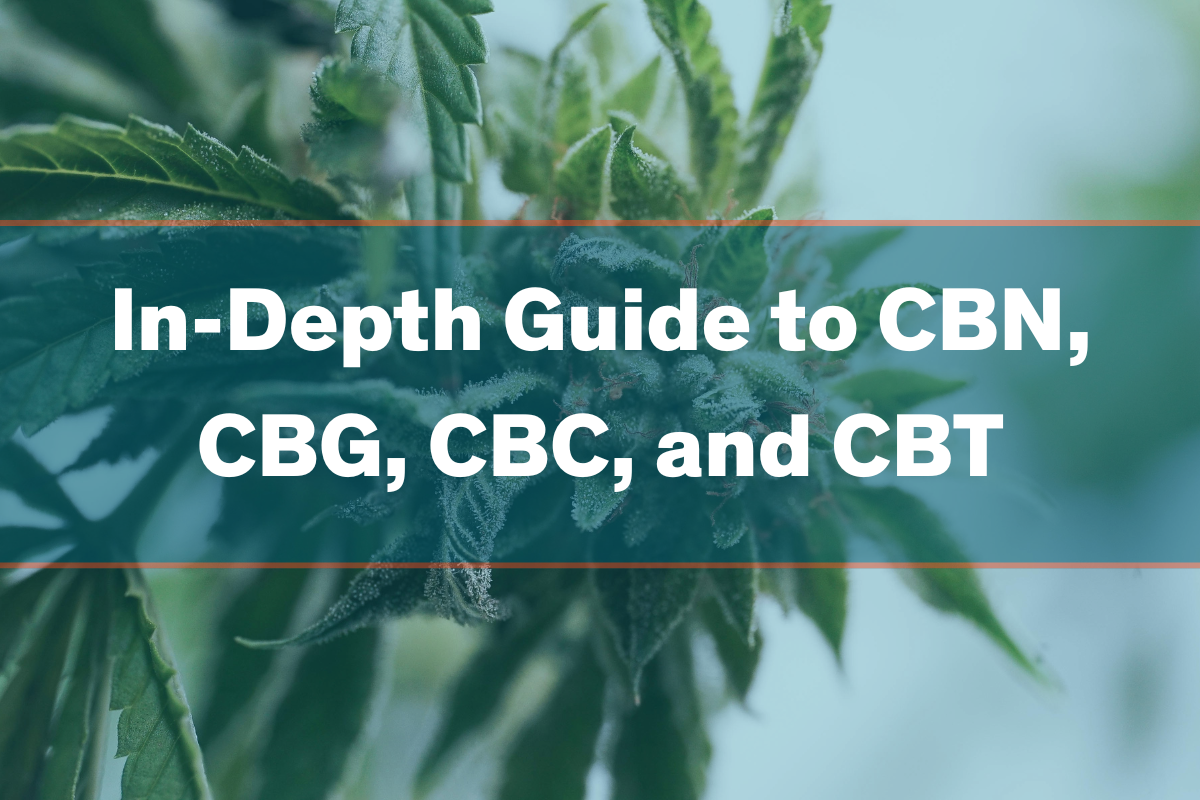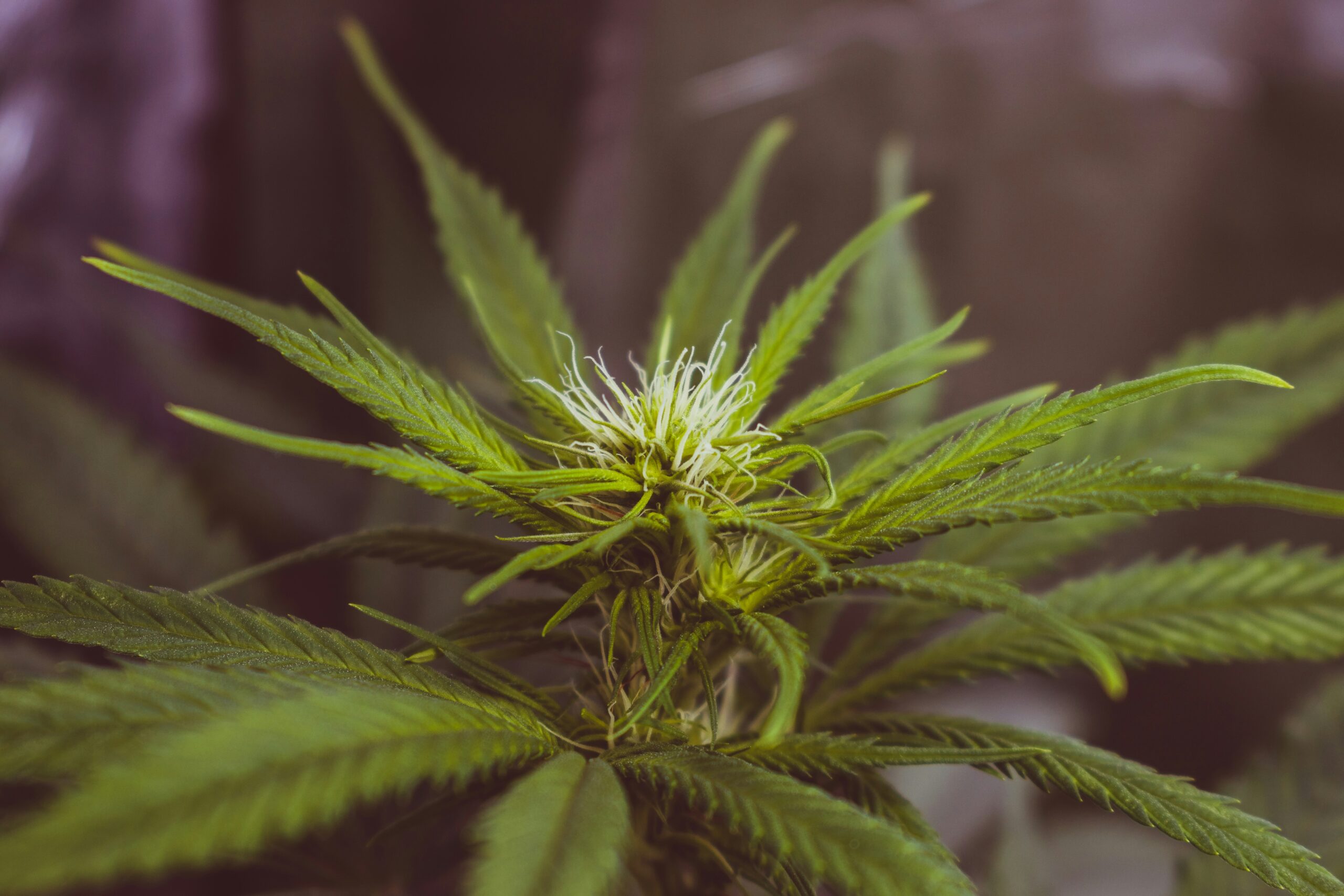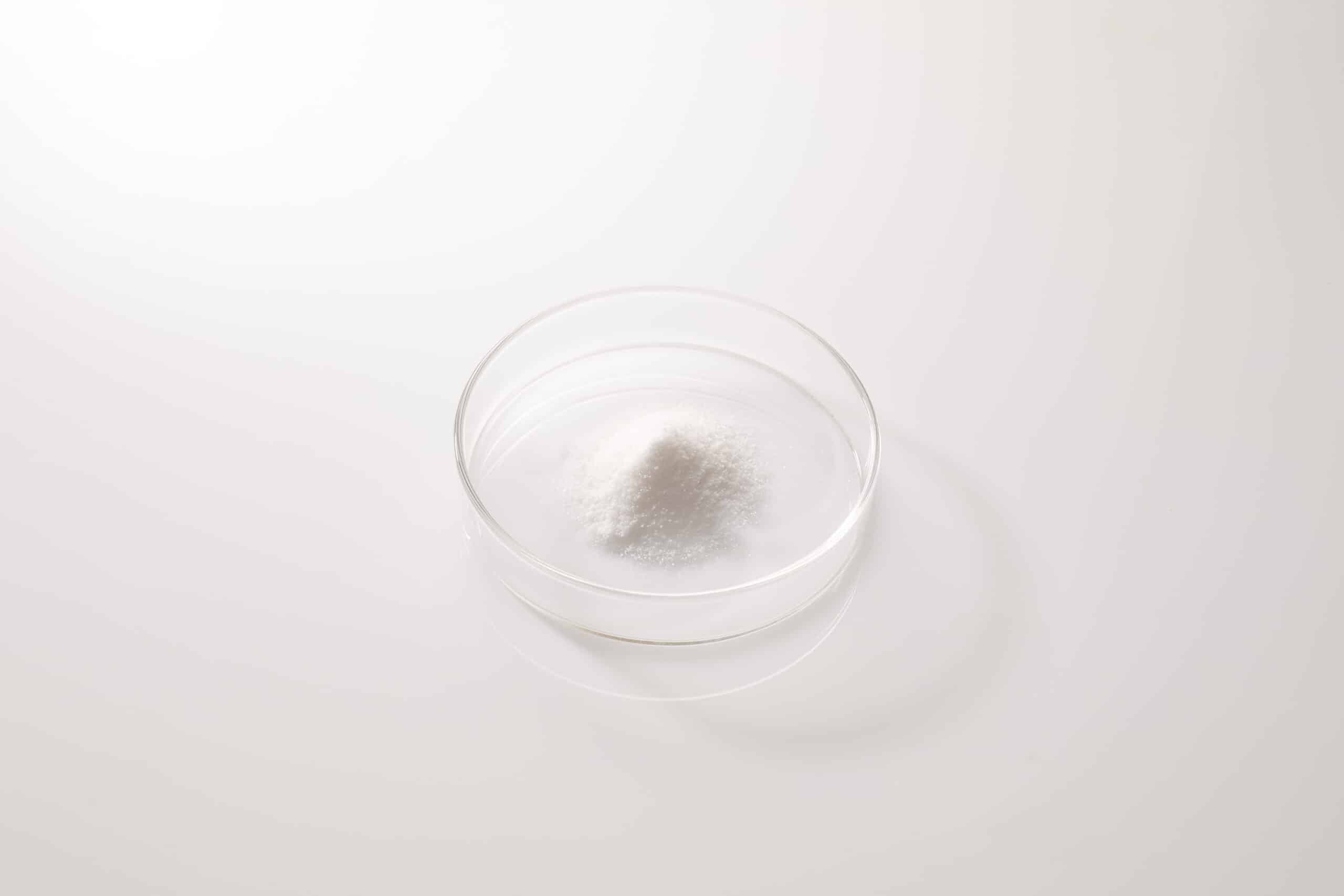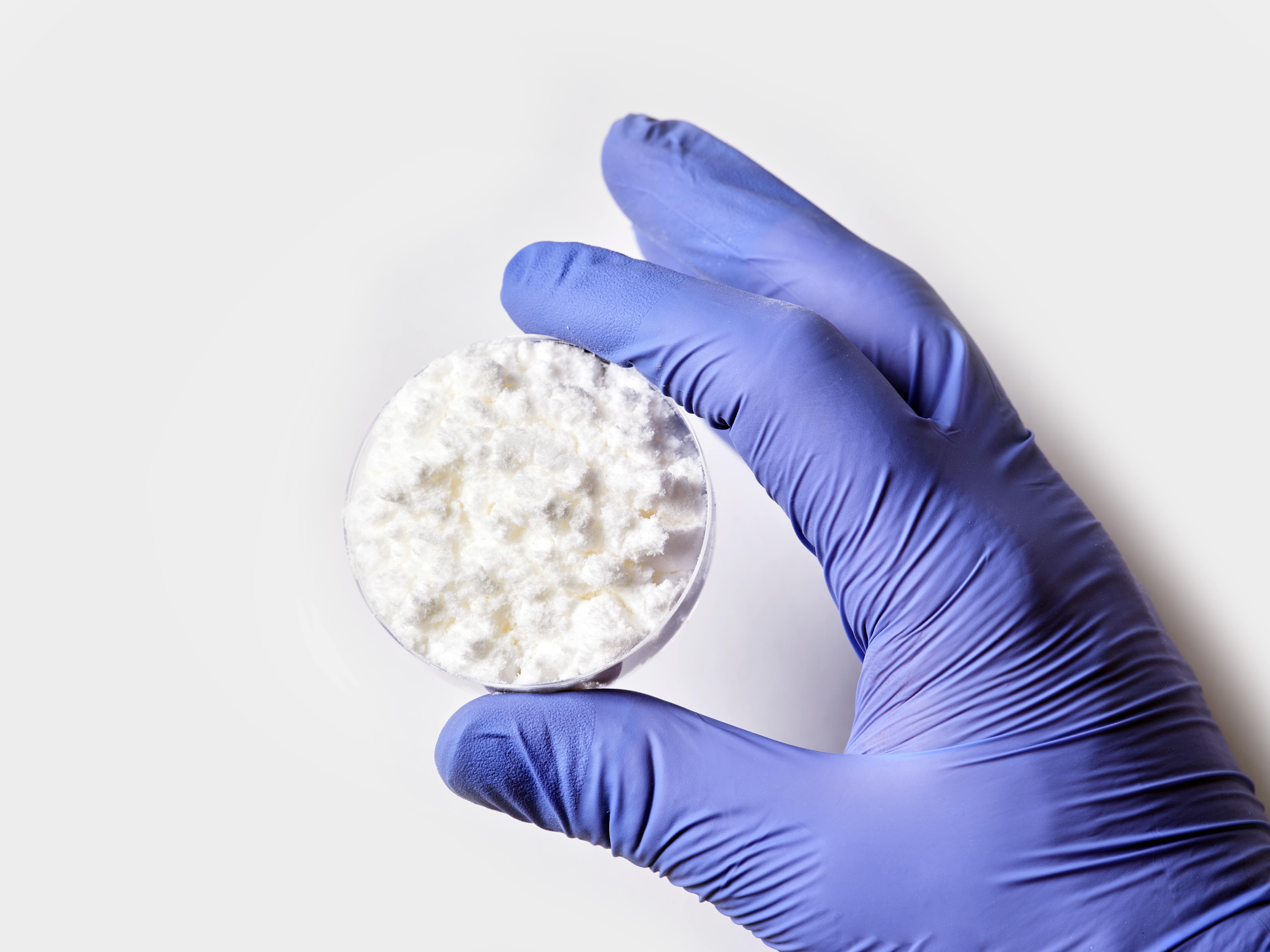The carboxylic acid CBGa (cannabigerolic acid) plays a critical role in the development of popular cannabinoids during the maturation of the cannabis flower. Recently, CBGa has come into the spotlight due to its usefulness in synthesizing cannabinoids. This cannabinoid precursor became even more famous when CBGa was included in a groundbreaking OSU study into cannabinoids and COVID¹.
In this guide, learn what CBGa is, how it’s different from CBD and CBDa, and everything we know about its benefits so far. With CBGa products now available on the internet, the time has come to demystify this hemp compound and explain its unique properties.
What is CBGa?
Cannabigerolic acid (CBGa)² is a naturally occurring compound found in cannabis and hemp. CBGa is the carboxylic acid precursor to cannabigerol (CBG), which means CBGa turns into CBG when exposed to stimuli that trigger decarboxylation. (the removal of a carbon atom from the CBGa molecule).
UV light, age, and heat can all cause decarboxylation, but some CBGa researchers and entrepreneurs want to catch this carboxylic acid before it settles into its final form. If you expose CBGa to certain natural cannabis enzymes, it will change from the precursor to CBG to the precursor to CBD, THC, or a variety of other cannabinoids.
As a result, CBGa is not only valued for its own benefits. This carboxylic acid is also hotly desired for its ability to turn into other compounds.
CBGa effects
Like CBD, CBDa (CBD’s precursor), and the vast majority of cannabinoids, CBGa is non-intoxicating. People who have used CBGa generally report that it has effects that are similar to those of CBG, which—in turn—are usually reported to be very close to the effects of CBD.
Like CBD, CBGa will not cause any form of intoxication, but it won’t provide exactly the same type of non-intoxicating effect as CBD. Results vary depending on the individual, but CBG is usually reported to be more energizing while CBD is more relaxing.
As with all cannabinoids, the effects of CBGa will vary significantly based on how you use it. Orally ingested, CBGa will deliver long-lasting but relatively mild effects. Inhaled, this cannabinoid precursor will provide much stronger effects that persist for a significantly shorter duration.
CBGa benefits
Even though this hemp substance hasn’t received as much attention as CBD or CBDa, a considerable amount of research has been conducted into the potential benefits CBGa may have to offer. In 2018, for instance, scientists investigated the ability of CBGa to reduce levels of heart-harming enzymes.³ Then, in 2019, researchers took a look at CBGa’s usefulness in combating metabolic disorders⁴.
What did the OSU CBGa study say?
Most recently, researchers at the University of Oregon included CBGa as one of the hemp substances they investigated in relation to COVID-19⁵. The OSU researchers wanted to find out if cannabinoids could neutralize spike proteins using both computer models and chemical assays.
In the end, CBGa and CBDa were among the compounds identified for further study due to both cannabinoids having shown possible activity against the spike protein. As a result, CBGa has suddenly been thrust to the forefront of the conversation surrounding cannabinoids and coronavirus.
Does CBGa fight COVID?
We don’t know enough about CBGa yet to be sure whether or not this compound prevents COVID-19 infection or mitigates the symptoms of this infectious disease. Based on the results of preliminary studies, however, the scientific community would certainly be justified in investigating the potential usefulness of CBGa, CBDa, and other hemp compounds for COVID in more detail.
CBGa vs. CBD
Compared to CBD, CBGa is in a completely different class of compounds and has a significantly different chemical structure. CBGa is a carboxylic acid while CBD is a stabilized cannabinoid, and these two hemp substances also appear to exert different effects.
The effects of CBD are often described as relaxing, and the same goes for CBDa. Users hardly ever report that CBD improves their energy levels, though, but CBGa appears to sometimes have an almost stimulating effect.
CBGa vs. CBG
CBGa and CBG are two sides of the same coin. On the one side, we have CBG, the stabilized form. On the other hand, we have CBGa, its carboxylic acid precursor.
Scientists are starting to discern, however, that CBGa and CBG aren’t exactly alike. For one thing, it’s easy to transform CBGa into a wide variety of different stabilized cannabinoids while the same can’t be said for CBG.
What is CBGa’s decarboxylation temperature?
CBGa converts (decarboxylates) into CBG at 110°C⁷. This means you need to heat CBGa molecules to at least 110 degrees C (230 degrees F) to convert it into CBG. It also means you’ll need to keep your CBGa below this temperature if you plan to use enzymes to transform it into a different carboxylic acid.
What is the best CBGa dosage?
At this point, we don’t know enough about CBGa to provide guidelines for its dosage. The FDA has not even released dosing guidelines for CBD yet, indicating that official standards for CBG and CBGa use are likely many years in the future. If you intend to use this cannabinoid precursor in the interim, just follow the usual dosing procedure you use when trying new hemp compounds for the first time: Start small, and increase your dosage over time as desired.
Does CBGa make you high?
No, just like CBG, CBGa does not have an intoxicating effect. While CBGa might affect your mental state differently than CBD, this cannabinoid precursor’s mildly energizing effets don’t reach the threshold for intoxication. On the contrary, using CBGa might make you feel vaguely upbeat or more prepared to face the day’s challenges.
Is cannabigerolic acid in CBD?
Yes, most CBD products contain trace concentrations of CBGa. Concentrations of CBGa in CBD products, however, rarely exceed 1%, making it difficult to experience the benefits of this cannabinoid by using full-spectrum CBD alone. If you want to enjoy everything CBGa has to offer, ingest this cannabinoid in a product that has been specifically designed to contain high concentrations of CBGa.
How potent is CBGa flower?
Recently, CBG-rich hemp flower has become popular on the internet, with the main active compound in CBG flower being CBGa. The CBG-rich hemp flowers contain high amounts of CBGa because they have not yet undergone decarboxylation thus, the majority of the CBG they contain is still in the form of the carboxylic acid CBGa. At present, the most potent CBG hemp flower contains around 20% total cannabinoids, of which CBGa constitutes a maximum of around 15%.
Where can I buy CBGa products?
You can buy various types of CBGa products online. CBGa products sold online are available on both a retail and wholesale basis. A variety of hemp brands have started offering products containing CBGa in the wake of the OSU COVID study, and there are a few different online CBGa bulk suppliers and white labellers to choose from.
Some examples of popular CBGa product formulations include:
1. CBGa tinctures
2. CBGa capsules
3. CBGa topicals
4. CBGa tablets
5. CBGa gummies
Can I buy CBGa wholesale?
Yes, the cannabinoid precursor CBGa is available online from a variety of different retailers. Quite a few different types of CBGa extract are offered, but remember that it pays to choose your cannabinoid supplier carefully.
Only cannabinoid producers with fully vertically integrated operations and comprehensive multi-stage analytics can produce the type of pure, high-grade CBGa you want to formulate competitive products. Hemp white labellers who go out of their way to acquire every relevant certification should also be preferred.
Is CBGa legal?
Like most cannabinoids aside from THC (delta-9 tetrahydrocannabinol), CBGa generally falls under the definition of “industrial hemp” as per the 2018 Farm Bill⁸. As a result, CBGa products are not considered to be illegal drugs as long as they contain less than 0.3% THC. CBGa products that contain less than this THC threshold are widely shipped and sold across state lines.
Can I sell CBGa products?
Yes, CBGa is generally considered to be an industrial hemp product on the federal, state, county, and municipal level, making obstacles to offering CBGa products online or in your local community rare. As a non-intoxicating cannabinoid with immense potential medicinal benefit, preventing the sale of CBGa products does not appear to be a significant law enforcement objective.
CBGa: Final thoughts
CBGa is just one of a growing roster of new cannabinoids that have the potential to entirely disrupt the hemp industry. While the OSU study has recieved a lot of attention lately, COVID isn’t the only application where CBGa research should be furthered.
There are dozens of ways this cannabinoid precursor might improve human lives, and CBGa will certainly play an important role in cannabis synthesis for years to come. For excellent prices on the world’s best bulk CBGa products, contact one of GVB Biopharma’s business development representatives.
CBGa FAQs
1. How does CBGa make you feel?
According to people who have used this cannabinoid, CBGa seems to have an effect similar to CBG.
Keep in mind, though, that many methods of using CBGa result in converting this cannabinoid into CBG, making products like CBGa vapes essentially CBG products instead. Choose your formulation wisely when crafting a best-selling CBGa product, and always remember that there’s a lot left to learn about both CBG and CBGa.
2. What is considered to be a high CBGa percentage?
In hemp, CBGa can sometimes naturally occur in concentrations of 15% or higher. It is the primary form of CBG found in CBG-rich hemp, and it only oxidizes into CBG after hemp is harvested and processed. CBGa extracts should contain at least 40-50% CBGa with most boasting upwards of 60%.
3. What is CBGa used for?
In the world of consumer hemp products, CBGa is only commonly used in products that are specifically designed to feature this niche cannabinoid. It is sometimes added to CBD or CBG tinctures, for instance, to provide differentiation from competing products.
In the world of cannabinoid science, on the other hand, CBGa is very popular as a raw material used to produce other cannabinoids via enzymatic conversion. Dubbed the “stem cell cannabinoid,” it appears CBGa has an important role to play in the future of cannabinoid research.
4. CBGa vs CBG?
Put side by side, how does CBGa compare to CBG? In the end, it’s a bit hard to compare the two cannabinoids since CBGa naturally converts to CBG at relatively low temperatures. The two compounds are definitely chemically distinct, though, and they appear to affect the body in different ways.
This cannabinoid has a unique chemical structure that seems to have made it the subject of intense interest to researchers, potentially suggesting CBGa has something to offer that CBG does not. Both cannabinoids, though, are non-intoxicating and appear to lack significant side effects.
Sources
- Oregon State research shows hemp compounds prevent coronavirus from. (2022, January 11). Life at OSU. https://today.oregonstate.edu/news/oregon-state-research-shows-hemp-compounds-prevent-coronavirus-entering-human-cells
- Havelka, J. (2021, January 25). What is CBGA (Cannabigerolic Acid) & what does this cannabinoid do? Leafly. https://www.leafly.com/news/science-tech/what-is-cbga-cannabigerolic-acid-marijuana-cannabinoid
- Smeriglio, A., Giofrè, S. V., Galati, E. M., Monforte, M. T., Cicero, N., D’Angelo, V., Grassi, G., & Circosta, C. (2018). Inhibition of aldose reductase activity by chemotypes extracts with high content of cannabidiol or cannabigerol. Fitoterapia, 127, 101–108. https://doi.org/10.1016/j.fitote.2018.02.002
- D’Aniello, E., Fellous, T., Iannotti, F. A., Gentile, A., Allarà, M., Balestrieri, F., Gray, R., Amodeo, P., Vitale, R. M., & di Marzo, V. (2019). Identification and characterization of phytocannabinoids as novel dual PPARα/γ agonists by a computational and in vitro experimental approach. Biochimica et Biophysica Acta (BBA) – General Subjects, 1863(3), 586–597. https://doi.org/10.1016/j.bbagen.2019.01.002
- van Breemen, R. B., Muchiri, R. N., Bates, T. A., Weinstein, J. B., Leier, H. C., Farley, S., & Tafesse, F. G. (2022). Cannabinoids Block Cellular Entry of SARS-CoV-2 and the Emerging Variants. Journal of Natural Products, 85(1), 176–184. https://doi.org/10.1021/acs.jnatprod.1c00946
- Sirikantaramas, S., Taura, F., Tanaka, Y., Ishikawa, Y., Morimoto, S., & Shoyama, Y. (2005). Tetrahydrocannabinolic Acid Synthase, the Enzyme Controlling Marijuana Psychoactivity, is Secreted into the Storage Cavity of the Glandular Trichomes. Plant and Cell Physiology, 46(9), 1578–1582. https://doi.org/10.1093/pcp/pci166
- Wang, M., Wang, Y. H., Avula, B., Radwan, M. M., Wanas, A. S., van Antwerp, J., Parcher, J. F., ElSohly, M. A., & Khan, I. A. (2016). Decarboxylation Study of Acidic Cannabinoids: A Novel Approach Using Ultra-High-Performance Supercritical Fluid Chromatography/Photodiode Array-Mass Spectrometry. Cannabis and Cannabinoid Research, 1(1), 262–271. https://doi.org/10.1089/can.2016.0020
- Hemp Production and the 2018 Farm Bill. (2019, July 25). U.S. Food and Drug Administration. https://www.fda.gov/news-events/congressional-testimony/hemp-production-and-2018-farm-bill-07252019

